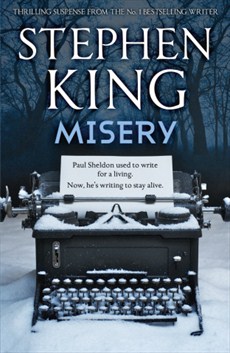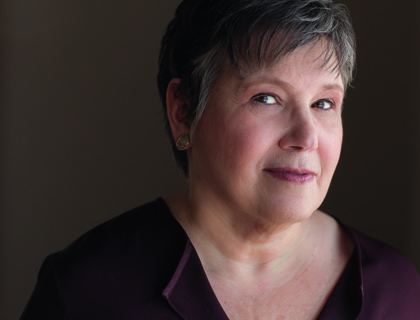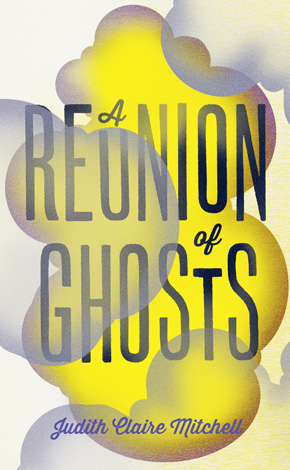Ghosts that don’t say boo
by Judith Claire MitchellMy new novel A Reunion of Ghosts tells the story of three suicidal sisters whose great grandfather played a role in mass killings in both World Wars. Given such dark subjects, readers tend to express pleasant surprise upon finding that the novel is laced with humor. This reaction makes me happy.
A smaller contingent of readers, however, has been surprised by a different aspect of the book. “Where were the ghosts?” these readers want to know. They tell me they patiently read through four hundred pages and there was nary a ghost to be found.
This makes me feel guilty.
You’d think it might have occurred to me that including the word ‘ghosts’ in my novel’s title would create certain expectations among readers partial to the horror genre, but it didn’t. As a result, there have been one or two moments when I’ve wished a warning had been placed on the front jacket: Reader, beware. Just as there are no pears in alligator pears and no chocolate in white chocolate, there are no ghosts in A Reunion of Ghosts.
Of course, for that warning to be accurate it would need to include a definition of the term ‘ghosts’. Because there are ghosts. They just aren’t the chain-rattling, shroud-wearing, wall-penetrating, flesh-shedding shrieking types. My ghosts don’t tiptoe across creaky floorboards and manifest suddenly in darkened bedrooms as clocks bong midnight. In short, my ghosts are not the kind of ghosts who say “Boo!”
I have to admit it. I’m not drawn to that kind of ghost story. It’s not a value judgment. Some of my best friends write horror, many more read it. It’s just a matter of taste and also a matter of my own limitations. When it comes to the ghostly, the supernatural, the paranormal, I have a hard time suspending my disbelief.
Almost to a person my university-aged creative writing students adore ghosts and the supernatural. They will often try to help me see what I’m missing. “What about The Turn of the Screw?” they say. “What about Ghostbusters?” Their passion for ghosts is broad. High art and low comedy, they joyfully embrace it all. They want me to share their enthusiasm.
Years ago a sophomore in a fiction-writing workshop loaned me her careworn copy of Stephen King’s Pet Sematary, and upon finishing it I had to admit that if any character in literature was going to scare me, it would be Gage Creed, the book’s corpse-eating toddler-demon. And yet, while I admired King’s audacity in turning his novel’s most sympathetic character into a monster – did I mention that the corpse on which said toddler-demon chomps is his mother’s? – and while I also recognized that the story is, on a deeper level, about fatherly love and parental nightmares, I never believed in Gage’s ghost on a visceral level (see above re. lousy suspension of disbelief mechanism). And so, though it broke my generous student’s heart, I could not honestly say I wished to read anything else in a similar genre.
Stephen King’s Misery may be devoid of conventional spooks and specters… but what it does give us is a novelist locked in a room with nothing but wretched onion-skin paper, a broken typewriter and the muse from hell.”
It turns out that, as the song says, I ain’t afraid of no ghosts. Or at least not of those kinds of ghosts. Jacob Marley with his chains of cashboxes and steel purses, a bandage tied around his head to keep his jaw from dropping off, does not make my heart crawl out of my chest to take up lodging in my throat. The ghost who terrifies the railway worker in Dickens’ ‘The Signalman’, intentionally a more sombre and powerful story than A Christmas Carol, doesn’t terrify me. I understand and admire the metaphorical import of the various ghosts in both these works, whether it’s the ghosts of Christmases Past, Present, and Future representing Scrooge’s selfhood or the ghost in ‘The Signalman’ embodying our fears regarding our helplessness in the face of implacable disaster and inevitable death.
But stories need to work on two levels, the literal and the subtextual, and in these stories it’s the plots that don’t do it for me. And for me that makes the ghosts literary devices rather than… well, real-live ghosts.
That said, Dickens has written ghosts – many ghosts – who may not scare the daylights out of me, but who have haunted me every since I first encountered them. To cite just one instance, there’s that passage in A Tale of Two Cities when Darnay first encounters his fellow prisoners in the dank cells of the French Revolution. “Ghosts all!” Darnay thinks of these men and women. “The ghost of beauty, the ghost of stateliness, the ghost of elegance, the ghost of pride, the ghost of frivolity, the ghost of wit, the ghost of youth, the ghost of age, all waiting their dismissal from this desolate shore…”
These are the kinds of ghosts that touch me viscerally, the ghosts that stay with me long after I’ve closed the book. They unnerve me in a way Jacob Marley never could.
After all, do I spend any time worrying about dead people showing up in my bedroom, ruining my wood floors with their rusty chains? I do not. But when I look in a mirror, do I think of my gone-by youth? When I struggle to remember an elusive word or a neighbor’s name, do I mourn the fact that my mind used to be far more agile? Of course I do. I may not be headed to the guillotine, but I’m a living being and so, by definition, just like those prisoners, I’ve committed no crime, but cannot escape death. In reading Darnay’s thoughts about his faded cohort, I feel for the prisoners in the story whose fate is not quite mine, but I also feel implicated myself.
 For a reader like me, then, it’s King’s Misery that haunts me more profoundly than Pet Sematary ever will. Misery may be devoid of conventional spooks and specters – one of the major subtextual points of the book is that King’s fans might read it and wish for a label on the front jacket warning them about that absence. But what it does give us is a novelist locked in a room with nothing but wretched onion-skin paper, a broken typewriter and the muse from hell. The literally hobbled writer speaks to any artist who has ever felt artistically hobbled. Now, that’s an image that haunts me.
For a reader like me, then, it’s King’s Misery that haunts me more profoundly than Pet Sematary ever will. Misery may be devoid of conventional spooks and specters – one of the major subtextual points of the book is that King’s fans might read it and wish for a label on the front jacket warning them about that absence. But what it does give us is a novelist locked in a room with nothing but wretched onion-skin paper, a broken typewriter and the muse from hell. The literally hobbled writer speaks to any artist who has ever felt artistically hobbled. Now, that’s an image that haunts me.
Or take the Overlook Hotel in The Shining, where the gone-by guests of the hotel come back to murderous life. One of the greatest haunted house stories of all time, people agree, and yet for me the Overlook will never feel as haunted as Darlington Hall, the manor in Kazuo Ishiguro’s The Remains of the Day, where every room is inhabited by very specific ghosts, including those of two Jewish refugees working as housemaids and dismissed by their Nazi-sympathizer employer, the obtuse Lord Darlington.
I’m not saying a reader can’t love both kinds of haunted houses. Of course they can. It’s just that I, personally, have a decided preference and it shows not only when you glance at my bookshelves (or my course syllabus, pity my horror-loving students), but also when you read my book with the word ‘ghosts’ in the title.
Stephen King himself speaks of the kinds of ghosts I’m drawn to more eloquently than I can. “[T]hey sit undramatically by the roadside like poor beggars…,” he writes of these ghosts in The Dark Tower, “and when we have passed, they gather up their bundles of memory and fall in behind, treading in our footsteps and catching up, little by little.”
Those ghosts, those poor beggars traipsing behind us with the memories that, for good or ill, won’t leave us alone, are the ghosts in A Reunion of Ghosts. My characters feel driven to suicide not by visiting emanations, but by the legacy of guilt and shame they’ve inherited from their ancestors. Do those ancestors literally show up in their New York apartment? Do they manifest and drive each sister to kill herself in some ghoulishly hideous way? No, they don’t. Of course they don’t.
But do those ancestors haunt these women and that apartment? Of course they do.
And so, while it’s true that A Reunion of Ghosts is not a horror story, it is very much a ghost story. This is why I gave it its title. It’s why there’s no label on the front jacket.
It probably won’t scare you. My hope is it might haunt you. By reminding you of the burdens of life, the ills of the twentieth century, and the ways we must cling to and love each other as we struggle to survive what the psalm calls this ‘vale of tears’.
It’s also my hope that you’ll be pleasantly surprised by the funny bits.
 Judith Claire Mitchell is the author of the novels The Last Day of the War and A Reunion of Ghosts. She teaches undergrad and graduate fiction workshops the University of Wisconsin, where she is a professor of English and the director of the MFA program in creative writing. She has received grants and fellowships from the Michener-Copernicus Society of America, the Wisconsin Institute for Creative Writing, the Wisconsin Arts Board, and Bread Loaf, among others. A Reunion of Ghosts is published by Fourth Estate. Read more.
Judith Claire Mitchell is the author of the novels The Last Day of the War and A Reunion of Ghosts. She teaches undergrad and graduate fiction workshops the University of Wisconsin, where she is a professor of English and the director of the MFA program in creative writing. She has received grants and fellowships from the Michener-Copernicus Society of America, the Wisconsin Institute for Creative Writing, the Wisconsin Arts Board, and Bread Loaf, among others. A Reunion of Ghosts is published by Fourth Estate. Read more.
judithclairemitchell.com
Author portrait © Nick Wilkes


